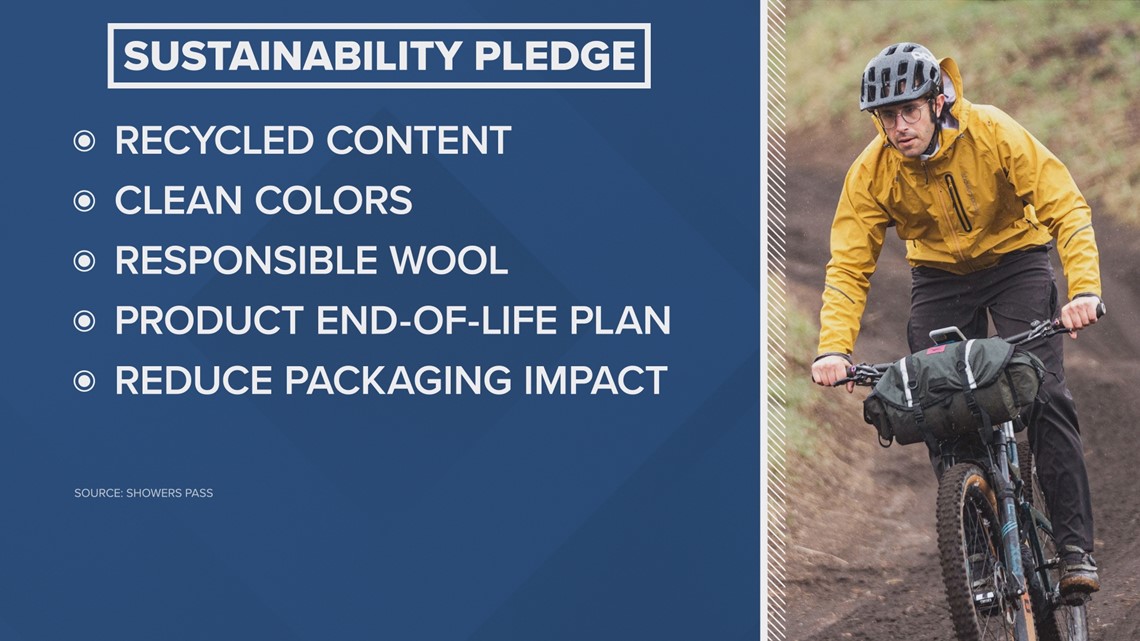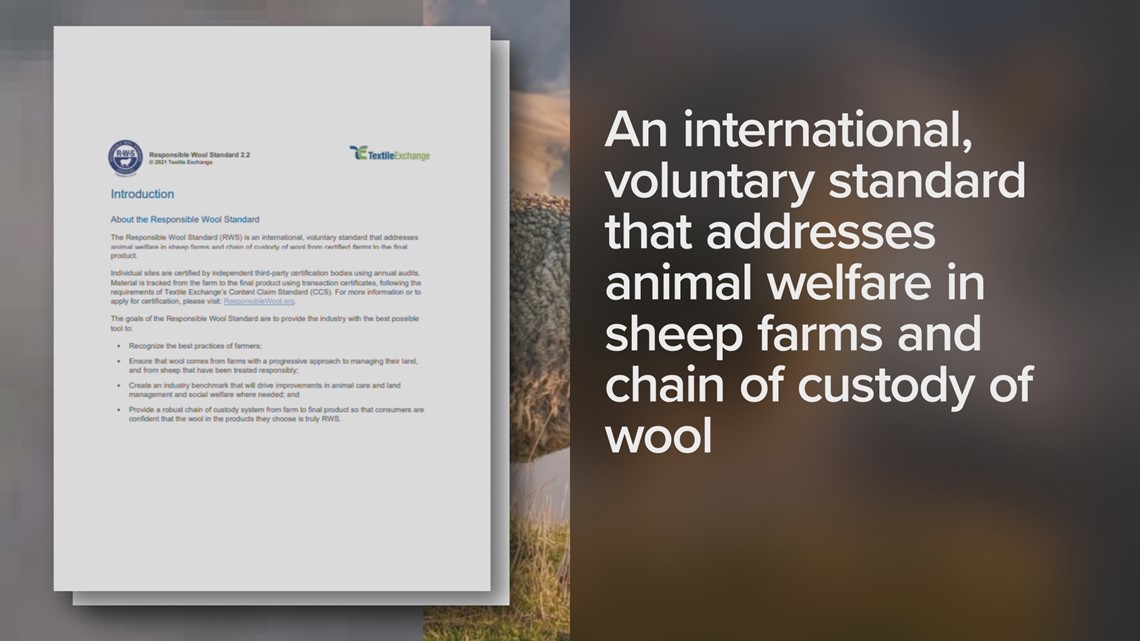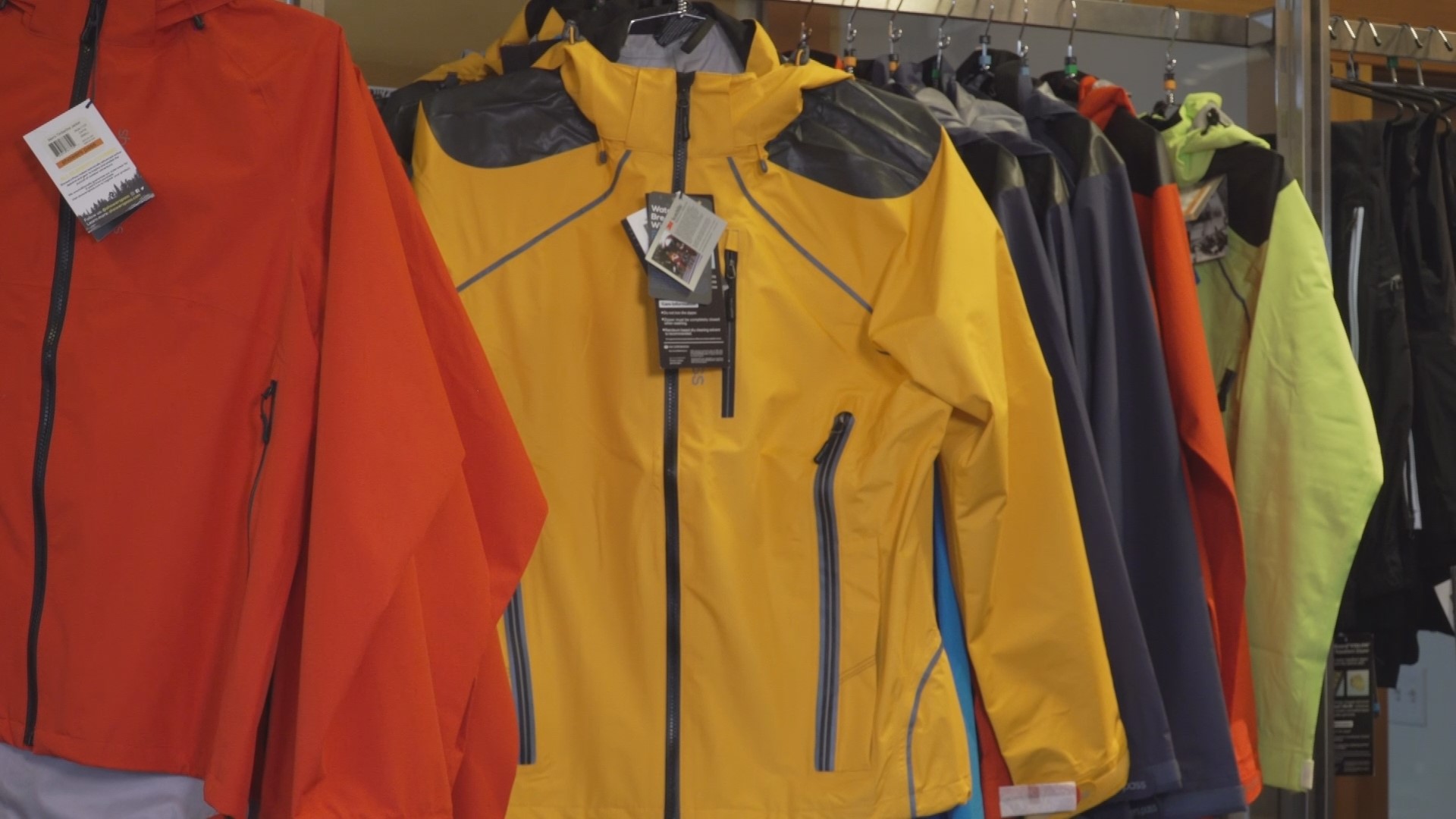PORTLAND, Ore. — There’s an expression about the clothing industry: "You know the color and fashion next season by the color of the rivers in China." This is from Linda Greer during her time at the National Resources Defense Council. About half of the world's clothing is manufactured in China, and the bright dyes that color that clothing are discarded into rivers.
The process of making clothing is harmful to the environment, but a southeast Portland-based company is trying to change that. Showers Pass has made a commitment to delivering high-quality gear that will keep you dry, while lightening environmental load.
"The best way to lessen the environmental impact of a product is to extend its life," said product manager George Dolack. "Doing that alone is not enough, but it's still an important consideration because two jackets are always going to be more impactful than one."
In 2019, Showers Pass, located on Southeast 6th Avenue and Southeast Lincoln Street, made a pledge to build gear with fully recycled materials.


"Setting real stakes in the ground, with a timeline, it adds a sense of urgency," Dolack said.
That urgency extends not only to sourcing better materials, it also means using cleaner methods and reducing energy consumption and packaging.
Humane treatment of animals and good care for the land on which they're raised is also a high priority. Showers pass has joined many companies worldwide in only using wool that meets the Responsible Wool Standard. The standard is defined by the Textile Exchange as "an international, voluntary standard that addresses animal welfare in sheep farms and chain of custody of wool."


"A big part of our commitment to sustainability over the years has been to build a durable and lasting product," Dolack said.
From collar to liner, to seams and fully recycled zippers, the popular eco-lite jacket has been engineered with every consideration, including the more than $300 retail price. Price and sustainability are a balancing act.
"We can’t change the world if we go out of business first," Dolack said. "When we commit to something, we have to know that it’s good."
Chris McGinness is a meteorologist and reporter for KGW. Got a story idea or a great photo you want to share? Email him at cmcginness@kgw.com or reach out on Facebook , Twitter and Instagram
VIDEO PLAYLIST: Climate change

